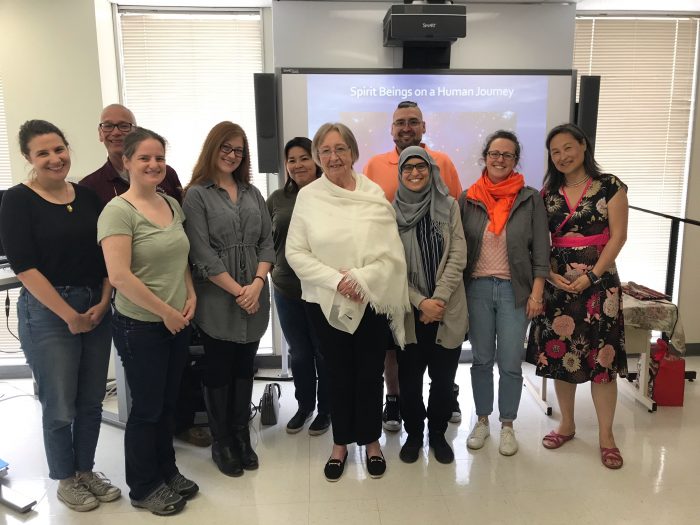By Frédérique Mazerolle
The need and the demand to include Indigenous perspectives in academic settings has notably increased at universities across North America. Recently, over a five-week span, a group of graduate students and researchers from McGill University’s Department of Family Medicine had the opportunity to learn and better understand Indigenous viewpoints on health and wellness, leading to discussions on finding ways to develop significant partnerships with Indigenous peoples through patient-centred research.
Now concluding its second edition, the course focused on exploring the nature of Indigenous peoples’ ways of understanding health and wellness, particularly with regards to the divergences between the Western and Indigenous knowledge and practices and the impact of the processes of assimilation and resulting ethnostress on Indigenous communities.
“This course was designed to showcase the experience of health and wellness from Indigenous peoples prior to the contact with European settlers, from which we transition to the period of arrival that lead to colonization and oppression of Indigenous communities,” explains Alex McComber, Assistant Professor in Family Medicine and lead instructor of the course. “This gives us the opportunity to assess the immediate and long-term effects on Indigenous peoples’ and communities health and wellness, but it also leads us to contemporary times when Indigenous peoples and scholars are collaborating with Western scholars and health professionals in more respectful ways to understand the impact of the experience, but also using traditional knowledge and practices to improve peoples’ health.”
Graduate students and researchers participating in the summer course familiarized themselves with Western and Indigenous scholarly work on concepts such as wholistic health, cultural genocide and the process of decolonizing approaches and processes. Each session ended with a reflective circle to give participants a chance to discuss and share their thoughts and ideas in a safe and inclusive space.
“From a professional point of view, this course opened my eyes to the suffering of Indigenous peoples, as well as the resilience of the communities and how that resilience can be showcased in collaborative research partnerships,” says Geneviève Arsenault-Lapierre, Research Associate in the Department of Family Medicine. “I cognitively understood this suffering, but this experience allowed me to put myself in a better position of empathy and, I hope, in a better position as an ally-researcher.”
The course, currently labelled as ‘FMED506: Indigenous perspectives: Decolonizing the approach to health” is currently being offered as a one-credit course. By the 2020-2021 academic year, the course will be offered for three credits and could eventually become part of the Graduate Studies curriculum in Family Medicine.
“Indigenous research and scholarship has been a key priority for the Department since our first partnership between the Kahnawake Indigenous community and Dr. Ann Macaulay [inaugural Director of Participatory Research at McGill and former Scientific Director of the Kahnawake Schools Diabetes Prevention Project] over 25 years ago,” adds Dr. Gillian Barlett-Esquilant, Research Director in the Department of Family Medicine. “I hope we can truly embrace the Indigenous approach to learning and knowing while avoiding the mistake of clinging to the approach we have historically been trained with.”
September 5, 2019

